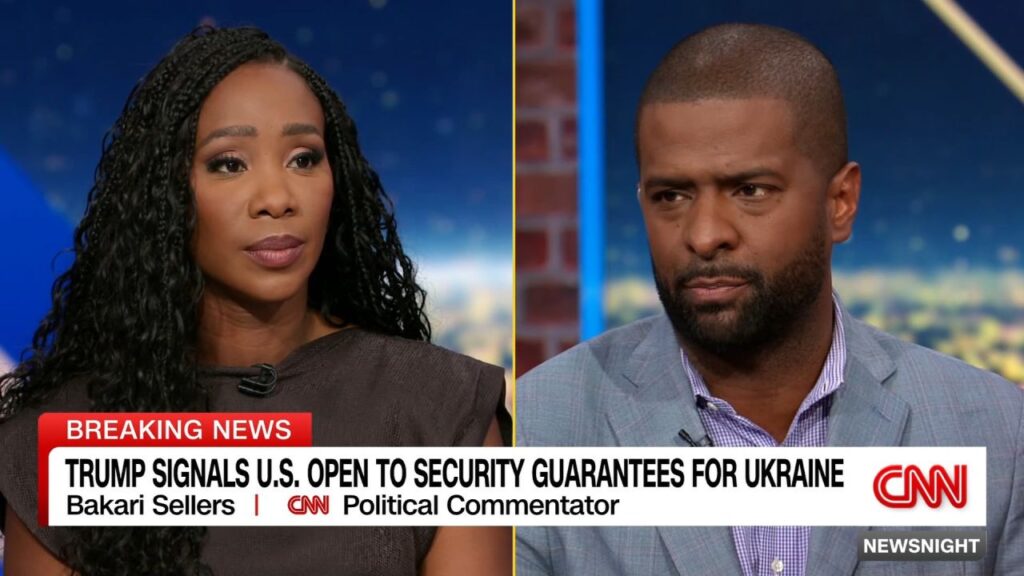
President Donald Trump hosted Ukrainian President Volodymyr Zelensky at the White House, discussing security arrangements for Ukraine amid ongoing tensions with Russia. During the meeting, Trump did not dismiss the possibility of deploying U.S. troops to enhance Ukraine’s security. This statement has sparked significant discussion, particularly among political commentators and supporters of Trump’s administration.
CNN political commentator Bakari Sellers criticized supporters of the former president who, he claims, have shifted their stance on military involvement. He pointed out that many who now seem amenable to boots on the ground were previously opposed to such measures. Sellers emphasized this apparent inconsistency in a recent broadcast, highlighting the evolving nature of political narratives surrounding military intervention.
The response from Trump’s supporters underscores a broader debate within the Republican Party regarding foreign policy and military engagement. This conversation is especially relevant given the ongoing conflict in Ukraine, where Russian aggression has prompted calls for increased international support.
Sellers challenged Republicans to articulate any specific threats that Trump has consistently addressed regarding Russian President Vladimir Putin. This inquiry aims to hold GOP members accountable for their claims about national security and military readiness.
The meeting at the White House, attended by several European leaders, reflects a concerted effort to bolster Ukraine’s defenses against potential Russian advances. As the situation unfolds, the implications of U.S. military involvement continue to be a contentious issue, with varying opinions on the appropriate level of support for Ukraine.
In this context, the dialogue between political pundits and lawmakers will likely shape public perceptions and policy decisions related to the ongoing crisis. As both sides of the political spectrum grapple with these complex issues, the discourse surrounding U.S. military support for Ukraine remains vital to understanding the broader geopolitical landscape.







